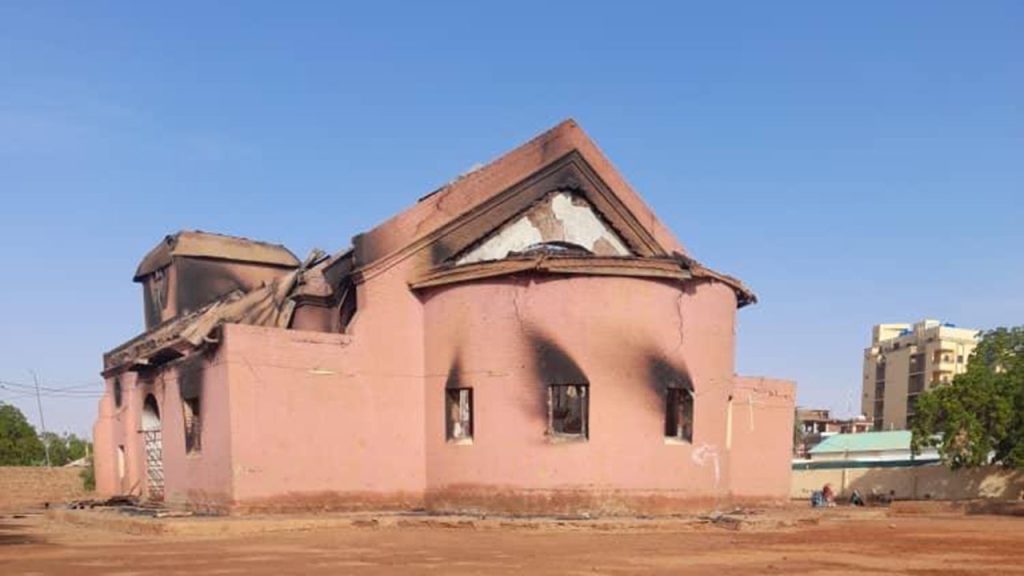Sudan’s Christians Face Dual Crisis: War and Persecution
Sudan’s Christian minority, approximately two million people, is enduring extraordinary hardship amid the country’s devastating civil war. As the conflict between the rebel Rapid Support Forces (RSF) and the Sudanese Armed Forces (SAF) enters its third year, Christians find themselves victims of both the widespread humanitarian disaster affecting all Sudanese and targeted religious persecution. Open Doors, a faith-based nonprofit dedicated to raising awareness of global persecution, ranks Sudan as the fifth-worst country worldwide for Christian persecution. In some besieged areas like El Fasher, Christians have reportedly resorted to eating animal feed and grass to survive, with medicine shortages turning even minor illnesses potentially fatal. The war has created the world’s largest displacement crisis, with up to 15 million people forced from their homes and an estimated 150,000 killed since fighting erupted in April 2023.
The roots of this conflict trace back to the 2019 overthrow of President Omar al-Bashir, but the situation for Christians reflects long-standing religious tensions in the country. A senior Sudanese church leader, speaking anonymously for safety reasons, described the dire situation: “Christians are seen as an enemy for both warring parties, and even the political parties. Sudan is considered as a land of one religion and one race.” This religious marginalization manifests in discriminatory aid distribution, with Christians reportedly being denied food assistance unless they abandon their faith. The leader explained that even when NGOs attempt to distribute relief, government authorities control who receives aid, systematically excluding religious minorities. This systematic discrimination compounds the already severe humanitarian crisis facing all Sudanese citizens.
Both warring factions have targeted Christian communities and institutions throughout the conflict. According to Mariam Wahba, research analyst at the Foundation for Defense of Democracies, more than 165 churches have been forced to close since the war began. The violence against Christians has been particularly brutal, with RSF fighters storming Khartoum’s Anglican cathedral, assaulting civilians, and converting it into a military base. Meanwhile, SAF airstrikes destroyed the Al Ezba Baptist Church in Khartoum North. Both sides have conducted arbitrary detentions of Christians, with SAF forces reportedly interrogating and beating dozens of believers in 2024 and 2025. The persecution extends beyond physical violence to include forced conversions, with RSF militants allegedly demanding Christians convert to Islam in exchange for aid and protection.
The situation has been especially severe in central Sudan. In Wad Madani, RSF fighters set fire to the Evangelical Church in December 2024, and later that month attacked the Sudanese Church of Christ in Al Jazirah State during a prayer service, wounding 14 worshippers. One militant reportedly vowed to “eliminate all Christians.” Wahba notes that the RSF is the latest incarnation of the Janjaweed militias, infamous for their campaign of ethnic cleansing in Darfur two decades ago, suggesting a concerning continuity in patterns of religious and ethnic violence. For Christians in El Fasher, a city under RSF siege, the situation has become desperate. The anonymous church leader described how Christians there have been reduced to eating animal feed and grass due to severe food shortages, with medicine so scarce that even common illnesses can prove fatal.
The U.S. State Department has acknowledged this deteriorating situation. A spokesperson told Fox News Digital, “Since the April 2023 outbreak of conflict in Sudan, we have witnessed significant backsliding in Sudan’s overall respect for fundamental freedoms, including religious freedom. This backsliding especially impacts Sudan’s marginalized ethnic and religious populations, including Christians.” Under the former Bashir regime, Sudan was designated a Country of Particular Concern for religious freedom violations, and the United States has expressed concern about preventing the return of similar conditions. The spokesperson emphasized that U.S. efforts aim to “limit negative Islamist influence in Sudan’s government and curtail Iran’s regional activities that have contributed to regional destabilization, conflict and civilian suffering.”
Despite these bleak circumstances, some Sudanese Christians maintain hope amid suffering. The church leader shared that in many areas, “it’s forbidden even to pray in your home as a group,” reflecting the severe restrictions on religious expression. While acknowledging that logically “there is no hope because it [Sudan] will become more radical,” he expressed faith that conditions could improve through divine intervention. “I believe in God who can turn the curse to blessing,” he said, adding a prayer that “the church continues to be like a light and salt in our country.” This sentiment reflects the resilience of Sudan’s Christian community, which continues to maintain its faith despite facing both the general horrors of civil war and specific targeting for their religious beliefs. As the conflict continues with no clear end in sight, Sudan’s Christians remain among the most vulnerable victims of a complex crisis that combines political instability, ethnic tensions, and religious persecution.


